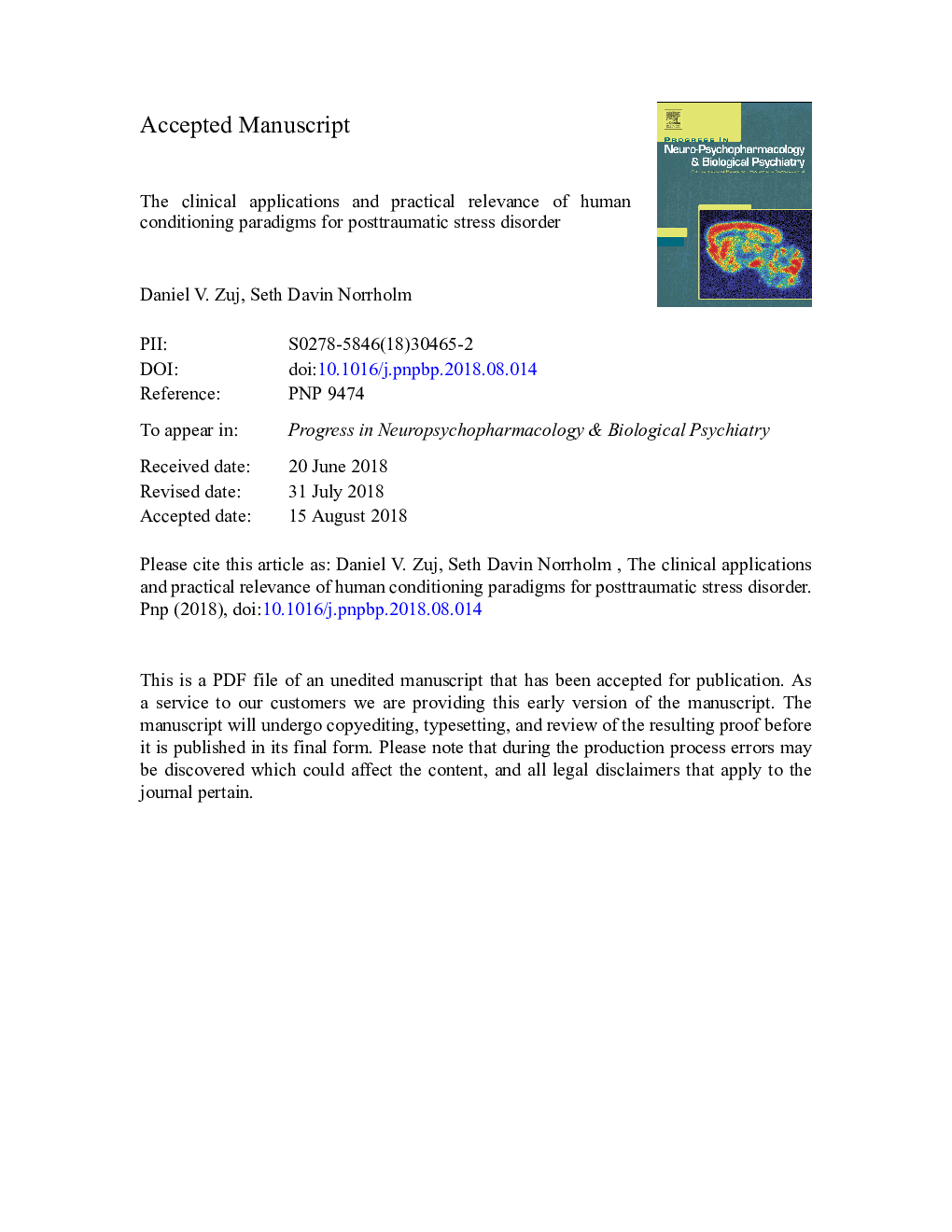| Article ID | Journal | Published Year | Pages | File Type |
|---|---|---|---|---|
| 9954960 | Progress in Neuro-Psychopharmacology and Biological Psychiatry | 2019 | 66 Pages |
Abstract
The classical conditioning paradigm of fear learning has spawned a number of experimental variations for the explanation of posttraumatic stress disorder (PTSD) etiology. These paradigms include extinction learning and recall, fear inhibition, fear generalization, and conditioned avoidance. As such, each of these paradigms have significant applications for understanding the development, maintenance, treatment, and relapse of the fear-related features of PTSD. In the present review, we describe each of these conditioning-based paradigms with reference to the clinical applications, and supported by case examples from patients with severe PTSD symptoms. We also review the neurobiological models of conditioning and extinction in animals, psychiatrically healthy humans, and PTSD patients, and discuss the current balance of evidence suggesting a number of biological, behavioral, and cognitive mechanisms/moderators of the conditioning and extinction process in experimental and clinical contexts.
Related Topics
Life Sciences
Neuroscience
Biological Psychiatry
Authors
Daniel V. Zuj, Seth Davin Norrholm,
